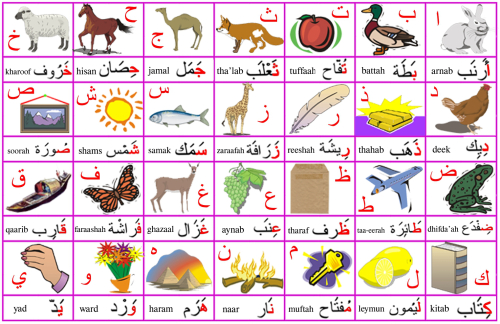
Arabic Text-To-Speech engines have taken more time to come to the full maturity of today, in comparison to other languages such as English TTS engines.
Which is quite odd due to the act there are 420 million Arabic speakers globally, which clearly shows there is a need for it.
Why has the Arabic language taken that time?
Simply the language is unique & more complex, hence it requires more time along with heavy R&D investment into AI & NLP to develop and train the engine, which IST have been doing via a team of specialized linguists & data scientists. In Today’s blog, we explore the top 3 unique characteristics of the Arabic language.
1.Arabic language word functionality and structure
Punctuation and vowels are the only way to pronounce Arabic words and sentences in its correct intended form, contextual variation is caused by the tashkīl⟨تَشْكِيل⟩,ḥarakāt ⟨حَرَكَات⟩, i’jam ⟨إِعْجَام⟩ supplementary diacritics so the speaker’s input is crucial to meet the relevancy of the intended context so the main challenge is humanizing the AI to overcome the ambiguity here are some examples for more elaboration.

Here are examples of common ambiguities and how their significance in Arabic word-formation by our linguistics team.
| Ambiguity type | Alternative 1 | Alternative 2 |
| ACTIVE / PASSIVE | to book حَجَزَ | was booked حُجِزَ |
| Gemination | to do فَعَلَ | to activate فَعَّلَ |
| Dual/Plural | The 2 artists اَلفَنَانَيْنِ | The artists اَلفَنَانِينَ |
| Noun/Verb | To charge شَحَنَ | Charging شَحْن |
2. The Arabic language is word-ordered-based
Typically when writing Arabic language, words are written without being discretized (tashkīl⟨تَشْكِيل⟩), hence the reader will vowelize it in contrast to the context of the sentence.
For example
عَقَدَ ‘to tie’ |
عِقْدٌ ‘lace’ |
عَقُدَ ‘became knotty’ |
حُبّ ‘love’ |
حَبْ ‘grain’ |
حِبْ ‘love!’ |
شَاهَدَ ‘to watch’ |
شَاهِدٌ ‘witness’ |
شَاهِدْ ‘watch!’ |
خَبَّرَ ‘to tell’ |
خَبَرٌ ‘a piece of news’ |
خَبَرَ ‘to know’ |
خَبُرَ ‘to become an expert’ |
خَبِرٌ ‘familiar with’ |
خَبَرَ ‘to plough’ |
3. Arabic is a highly inflectional language
Arabic is collapsed into just one word due to the abundance of prefixes, suffixes, pronouns, as a matter of fact Arabic allows up to three consecutive prepositions to precede a word, e.g. the word ‘’وبالوالدين (and with the parents) contains three prefixes: ‘,’ب ‘’و and ‘.’ال
The characteristic of Arabic suffixes is similar to that of prefixes, which does not have a systematic rule for their attachment to Arabic words There are 15 Arabic suffixes; most of them are made of attachable pronouns (Sembok et al., 2011a).
Conquering those 3 mistakes with Nūn TTS
By combining the power and proficiency of AI, Machine Learning & Natural Learning Processing, our team of linguists along with IST’s AI programmers, designed Nūn as an accurate, human-sounding, conversational driven Arabic TTS engine.
Here is how
- Using voice segment concatenation techniques to generate optimized human-sounding Arabic words.
- Creating a contextual NLP Engine, to understand the context of which the words are to know what is the correct pronunciation and intended meaning of the word.
- Humanizing the AI to auto diacritic the Arabic input with preprocessing techniques.
- Manual optimization of every word and letter that took up to 60 years of man-hours to build one of the leading Arabic TTS AI in the region.
3 different Nūn TTS solutions that are focused on an immense customer experience
Nūn Live
Bringing your IVR to live with a dynamic data that enhance your CX interacting with your clients with a natural real-time human-like experience with your clients making your brand more trustworthy with packages specially tailored to meets your industry tone of voice
Nūn Editor
An on-demand simple interface that can be used both on the cloud & offline generating the most complex Arabic natural-sounding voice talents with different audio formats with the support of 20+languages
Nūn Studio
Get all your human-sounding voice prompts instantly perfectly tuned with the support of the biggest team of linguists and data scientists in the region.
Check our Soundcloud channel for Nūn Text-To-Speech samples


